The First Joint Pre-Deployment Training On Stability Policing For National Guard And National Police
May 03, 2024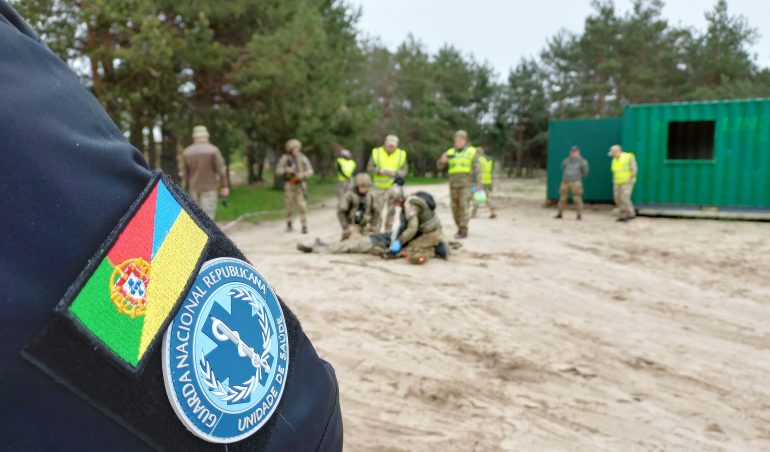
“Check the blindage, is there anyone?” “Wounded, massive bleeding!” “Beware of a mine! Mark it!” “Hostages!” These alarming calls resonate across the training ground, immersing participants deeply in scenarios that feel strikingly similar to a battlefield. The environment is charged with the urgency of a combat zone: groups of people in camouflage, armed and vigilant, amidst smoke and the echoing sounds of gunfire and explosions. Nearby, a checkpoint scene unfolds with individuals handcuffed to the bonnet of a police car. Amidst this chaos, some participants in green jackets are notably calmer, making notes and discussing tactics with the representatives from the Specialised Team of the European Gendarmerie Force (EGF), who arrived earlier this year to share their extensive expertise in Stability Policing in conflict and post-conflict settlements with their Ukrainian counterparts.
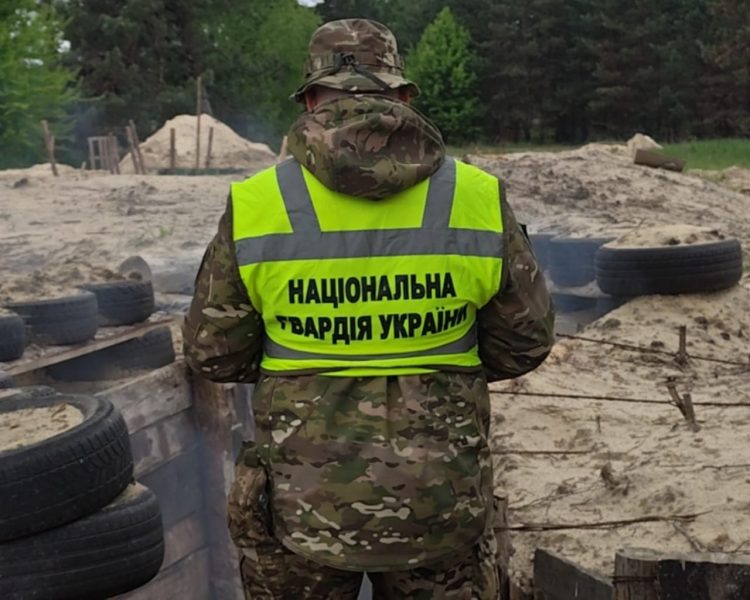
This dynamic setting forms part of an integrated exercise concluding a 2-week Pilot Joint Pre-deployment Training (PDT) on Stability Policing in the de-occupied and adjacent territories (DOAT), a first-ever joint endeavour for personnel from the National Guard (NGU) and National Police of Ukraine (NPU) on the matter. The exercise aims to refine a training curriculum that was collaboratively developed by Ukrainian trainers from these law enforcement agencies with valuable insights from the EGF Specialised Team’s training of trainers (ToT) sessions done weeks prior. Those in the green jackets are ToT participants who are starting to cascade the knowledge and skills they received from the EGF experts in Stability Policing to the officers who will be deployed in the DOAT.
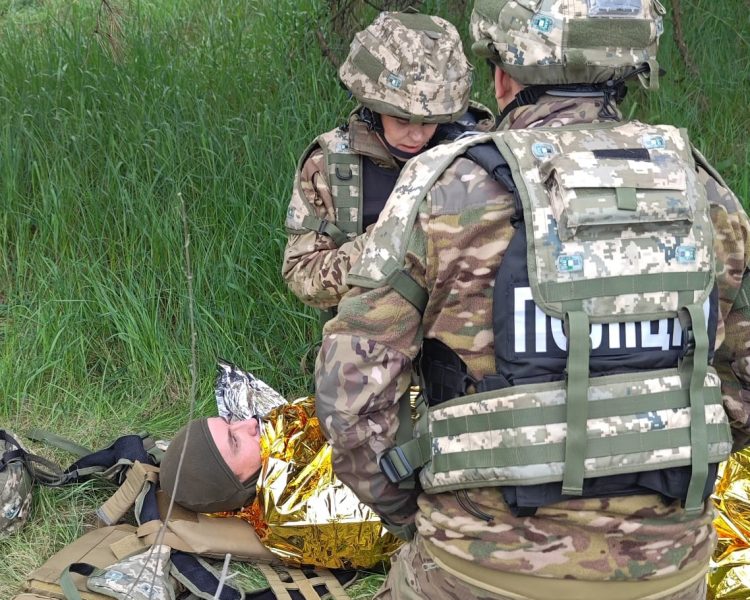
The curriculum is being consolidated to improve techniques, tactics, and procedures tailored for effective Stability Policing in the DOAT. The Ukrainian trainers, having recently upgraded their skills with the support of their European colleagues, have adapted the programme to align more closely with the specific challenges and realities faced in the country.
“In developing this programme, we integrated experiences from the de-occupation of Kharkiv and Kherson regions to simulate conditions as closely as possible to what our forces will encounter in the field,” explains one of the organisers of the current course from the National Guard of Ukraine.
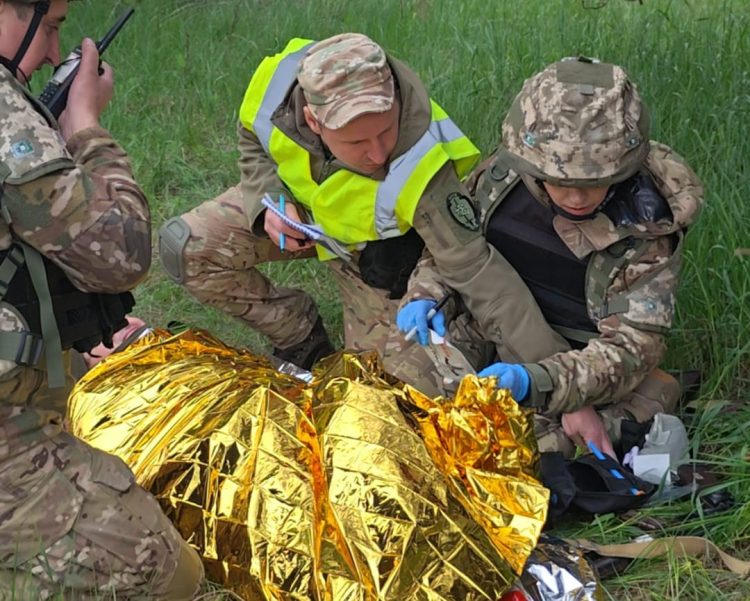
This training aims to ensure that the group of participants finishes the course as a cohesive unit, subunit (platoon), or team, with the organisation and efficient working dynamics in place, so that when mobilised as a module for deployment, the group is immediately ready and fit for work. Valerii, a trainer of the PDT and participant in the ToT, highlighted the initiative’s benefits, noting significant learning in police work nuances, such as victim interrogation and evidence collection for NGU officers. Meanwhile, NPU participants appreciated gaining insights into military tasks like minefield isolation and site exploitation and security during re-entry into de-occupied territories. Thus, both parts of the joint group have a much better understanding of each other’s roles, thus generating important synergies.
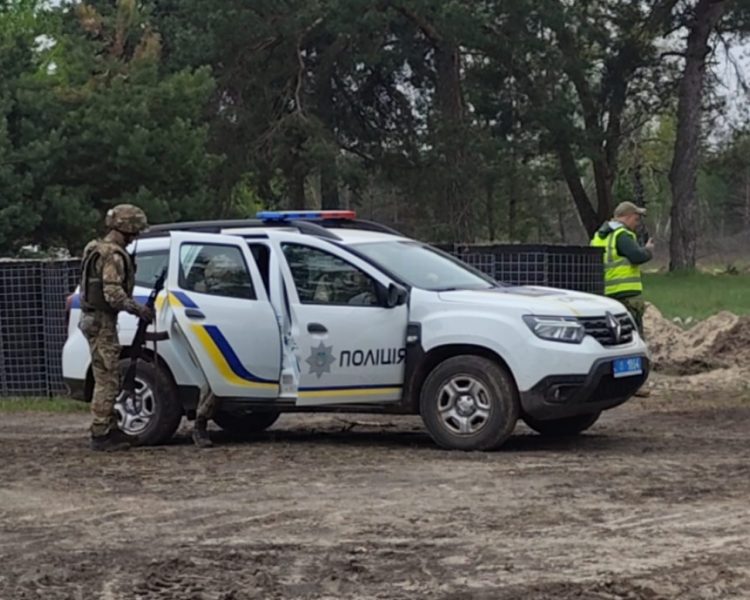
The role of EGF Specialised Team and the future of Stability Policing in Ukraine
Last year, aiming to support Ukrainian counterparts more effectively in their operations in the de-occupied territories, the EUAM Ukraine developed the Concept and Action Plan on DOAT. As part of this strategic initiative, the European Union selected an EGF Specialised Team to support the strengthening of competencies of NPU and NGU personnel by providing six training-of-trainers courses in Stability Policing during February and March 2024.
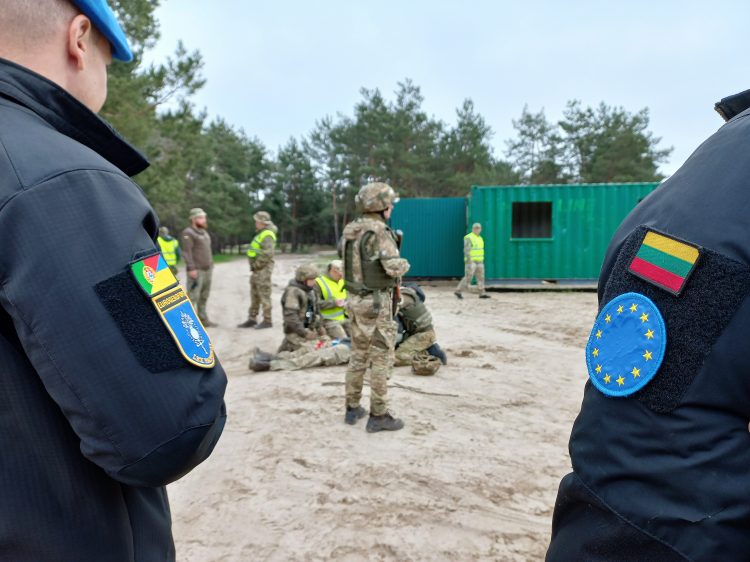
“Now we are in the second phase of our collaboration with Ukrainian partners under the Concept and Action Plan developed by EUAM for the DOAT,” notes Helder Garcao, Head of the EGF Specialised Team. “It includes mentoring and monitoring by our team to ensure that the training imparted earlier is effectively implemented. This collaborative effort not only facilitates the exchange of best practices but also fosters mutual understanding and enhances interoperability among all stakeholders involved in Stability Policing efforts,” he adds.
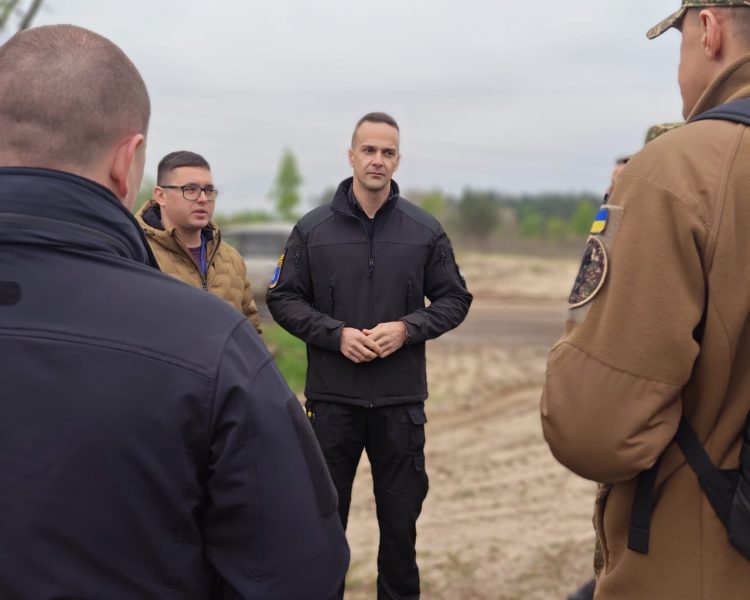
Acknowledging the potential for further enhancements, participants from the NPU and NGU have expressed a robust desire for ongoing cooperation with the EUAM and Specialised Team members. They are optimistic that this partnership will soon yield significant outcomes, including the ministerial approval of a consolidated curriculum for pre-deployment trainings for law enforcement officers being deployed in DOAT and the finalisation and approval of a common operational approach focused on Stability Policing. This concept seeks to update the roles of civilian and military authorities, improving interagency coordination, enhancing interoperability, while enables a balanced resource allocation.
The EUAM remains committed to supporting Ukrainian counterparts in these efforts, assisting law enforcement personnel in thorough preparation to face the challenges in DOAT.


